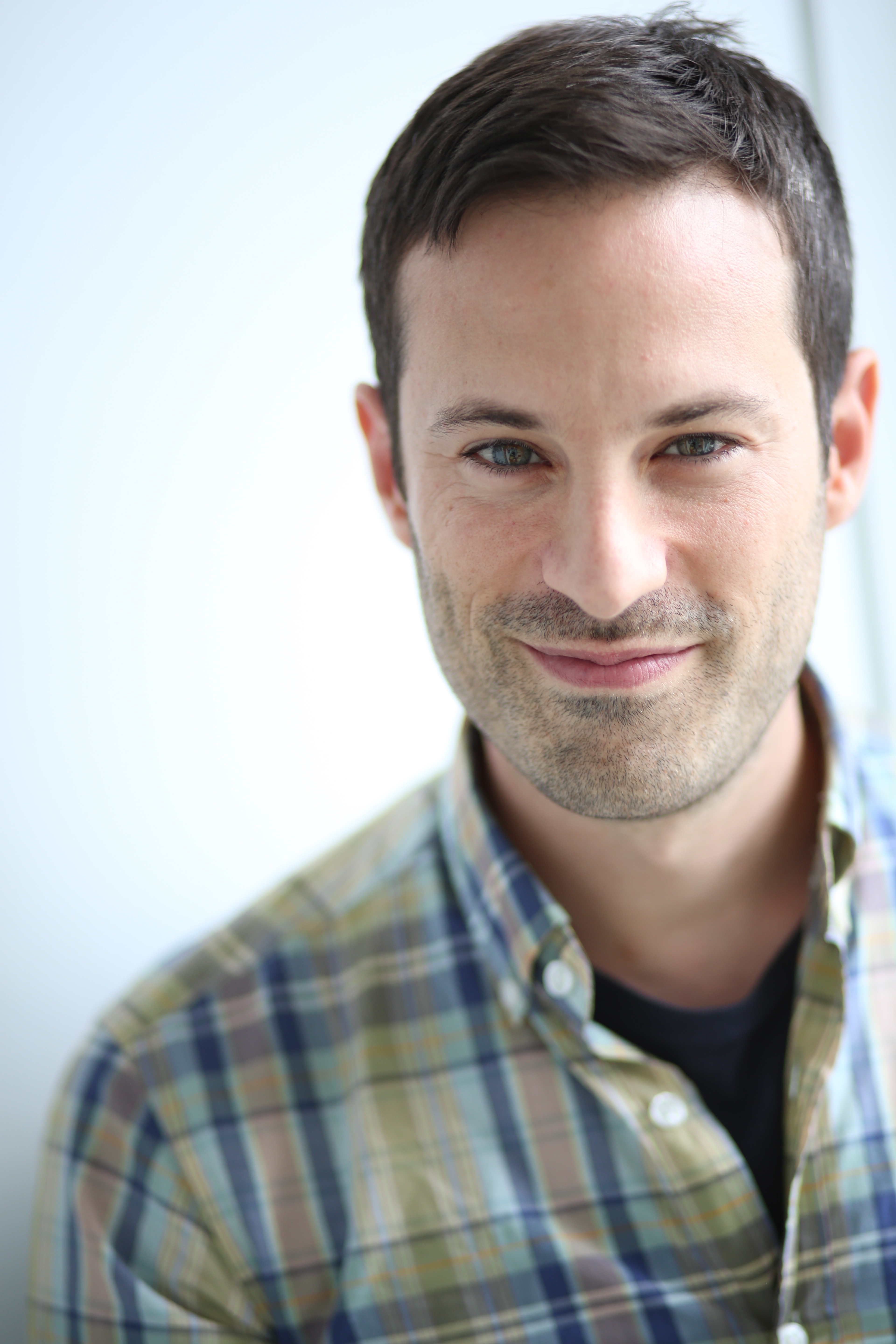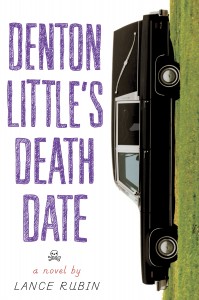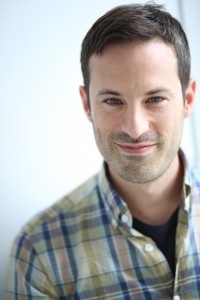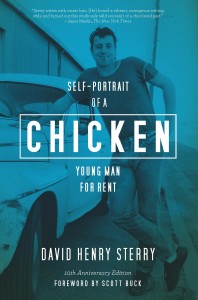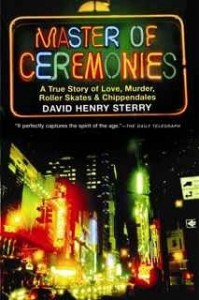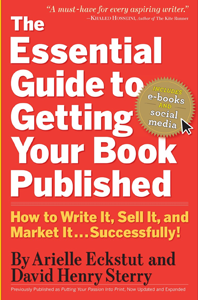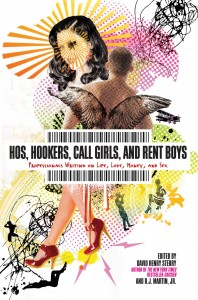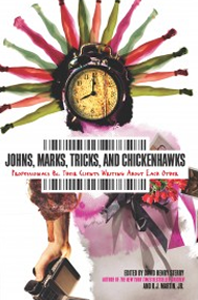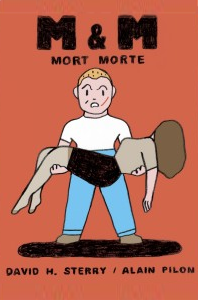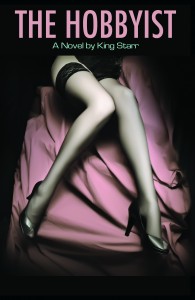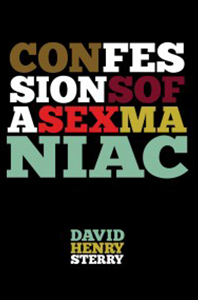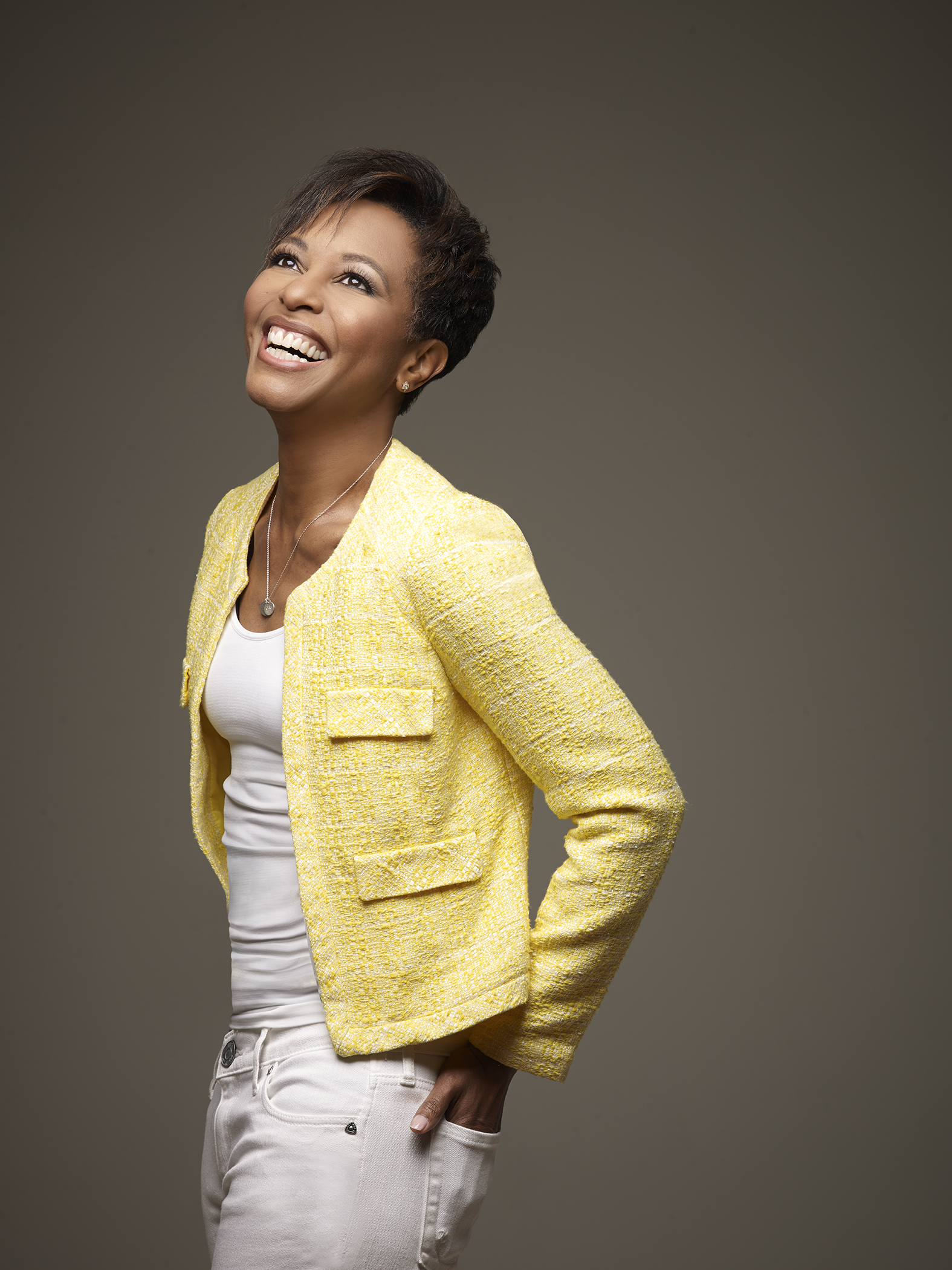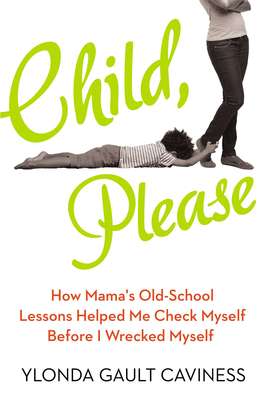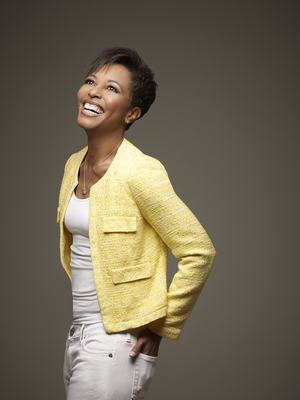One of the fun things about being a Book Doctor is that we get to travel to cool places and meet cool people. If you haven’t been to San Antonio, do yourself a favor and go. It’s a beautiful city. The San Antonio Book Festival was really a blast: great authors, great craft stuff for Olive, our daughter, and most importantly, lots of readers. While we were there, we met Lance Rubin at the party they have for authors. He explained what his first book is about, and it’s great. We decided to pick his brain about writing, publishing, and how he got his first book deal. To read on the Huffington Post, click here.
The Book Doctors: How did you get started as a writer?
Lance Rubin: Since I was eight years old, I always thought I was going to be a professional actor. So the writing I did through most of my life was often in service of that. When I was younger, I wrote skits and short films with friends that we would perform. In college, I wrote and performed a one-man show. After college, I co-wrote and performed a sketch comedy show called The Lance and Ray Show at the Upright Citizens Brigade Theatre. Then, several years ago, I was finding my acting career frustrating and unfulfilling right around the same time I read The Hunger Games. I really loved it, and I thought, “Maybe I’ll try to write a YA novel.” It wasn’t a fully rational decision, but I started writing, and I was having such a good time–feeling empowered and creatively fulfilled in new, exciting ways–that I kept at it. Even though I hadn’t written long-form fiction before, I think all the various writing I’d been doing my whole life completely informed this book.
TBD: What are some of your favorite books and why?
LR: Some favorites include:
The Harry Potter series by J.K. Rowling. Such brilliant storytelling: magical situations always grounded in humanity; a complex story that weaves and intertwines through seven books; humor that comes from a place of love; and fully fleshed-out characters who truly care about each other. I could go on and on. Anyone who’s been resisting reading these is a fool.
The Amazing Adventures of Kavalier and Clay by Michael Chabon. Not only does Chabon spin the most delightful, acrobatic sentences, but he tells a completely engaging story of friendship, love, comic books, WWII, and superheroes.
The Spontaneous Fulfillment of Desire by Deepak Chopra. This nonfiction is all about the power of coincidences and synchronicity. I try to read it every couple years because it makes life more fun; you start to find coincidences everywhere, like a code from the universe you have to solve.
The Stinky Cheese Man and Other Fairly Stupid Tales by Jon Scieszka and Lane Smith. When I first read it as a kid, it made me aware of the way books can subvert narrative expectations and make you laugh out loud.
TBD: How did being a professional actor help and/or hinder you as a writer?
LR: As an actor, I was always trying to get inside the head of a character, figure out how that character thinks and responds to the world. When I started writing this book, with its first-person narrator, I realized there was a surprising amount of overlap, as I was essentially doing the same thing: figuring out how the main character (and all of the other characters, too) thinks and responds to the world. And it was even better because now I got to actually come up with what the characters say! That said, since I come from the world of acting and comedy, I’m often so focused on dialogue that the descriptive parts of my writing are severely lacking. But hey, that’s what rewriting is for!
TBD: The idea for your new book, Denton Little’s Deathdate, is so cool. How did you come up with it?
LR: I think about time a lot. I’m always taking inventory of my life in terms of dates. I’ll think things like, “What was going on in my life a year ago today? Two years ago today? Three?” And so on. And I’m usually able to remember. So one day I thought, “What if I could take inventory of my life in terms of a future date? Specifically, themost important date, the day I’m going to die?” I wondered how this would change the way I lived. Or if maybe it wouldn’t change a thing. And then I thought, “What ifeveryone knew the day they were going to die?” So then there was the idea: in a world where everyone knows their deathdate, the protagonist is going to die tomorrow. That was pretty much all I had for a few years. The rest came later.
TBD: How did you go about getting a book deal?
LR: I just Googled “book deal,” clicked on the first link that appeared, and signed up! Isn’t that how it works for everybody?
Apologies for that dumb joke. I did have a relatively charmed journey to a book deal, as my best friend since I was three, Zack Wagman, has worked in publishing for over a decade and is a brilliant editor, currently at Ecco. He was one of a handful of close people in my life who read the first draft of my book and gave feedback, and then was one of a duo of close people in my life (along with my wife, Katie Schorr) who gave feedback on the three or four subsequent drafts over the next year. Finally, once I had a draft that was in solid shape, Zack connected me to agent Mollie Glick at Foundry Literary + Media, who responded to the book and signed me. (I know getting an agent is not supposed to be such a smooth process, so I understand if writers out there want to spit in my proverbial soup. I’ve faced a ton of rejection in my life, too, if that makes you feel better. See: abandoned acting career.) Mollie is terrific, and she guided me through one last big rewrite before submitting to various publishing houses. In November 2013, Denton was sold to Knopf Books for Young Readers.
TBD: What was it like working with your editor?
LR: Super. I feel so fortunate that I ended up working with Nancy Siscoe. She’s smart and kind and funny, and she loves all the same things about my book that I do. By the time she got my first book, it had already been rewritten a lot, so her changes were minor but really insightful as to things that would make the story clearer and more satisfying. My second book, which comes out in April 2016, was pretty much a mess when she got it. So I was truly relieved when I received her pages and pages of single-spaced notes and they all resonated with me. It was like, “Oh man, she has great ideas about how to make this less of a mess. Thank god.”
TBD: We’re intrigued by the musical you’re writing. What exactly is Annie Golden: Bounty Hunter, Yo!?
LR: Hey, thanks for asking! It’s a musical I co-wrote with Joe Iconis and Jason “SweetTooth” Williams about a veteran musical theater actress named Annie Golden (to be played by veteran musical theater actress Annie Golden, known to many as Norma on Orange is the New Black) who gets pulled into the world of bounty hunting and starts kicking ass in ways she never imagined she could. It’s a comedy highly inspired by exploitation movies of the 1970s and ’80s–both story-wise and musically–but it’s also about breaking out of the boxes society puts people into. It’s been an exciting project to work on. We’re hoping it will have its first production in the not-so-distant future.
TBD: Did you outline your book before you started writing? What kind of a routine do you have as a writer?
LR: Thus far in the two books I’ve written, I haven’t outlined before starting my first drafts. I generally have some broad ideas about where the story might go and a page or two of notes on characters and potential plot points, but then I just start writing and discover as I go. In the case of my second book, I got about 15,000 words in, realized I hated where the story was going, scrapped it, and started again. Outlining might have helped me avoid that, but it’s still the way I prefer to work.
As far as writing routine, I have several coffee shops and libraries that I bounce between. Last year, I worked almost exclusively at the Tea Lounge in Brooklyn. Then it closed out of nowhere in December, which was quietly devastating. I now keep a rotation of several spots because I’m not gonna get hurt like that again.
When I’m working on a first draft, I’m always aiming for word count, which was something I took from Stephen King’s On Writing. With my first book, I tried to get 1,000 words a day. With my second, I aimed for 2,000 (and often only got to around 1,700).
I work way better in the morning, so it’s often an 8:30 am – 3 pm workday, give or take an hour (and sometimes I’m needed on Dad duty for my 1-year-old son, so that timing’s always subject to change).
I usually listen to music while I write, and the headphones going in is my indicator to myself: “Okay, stop dicking around on the internet. Time to work.”
TBD: I noticed your book has been translated into several languages. It was really fun for me when I saw my book in Russian and its different covers. What was it like seeing the book you wrote in a language you can’t read?
LR: That’s absolutely been one of the most surreal parts of the experience. Each cover has had its own wonderfully distinct take on the story, which has been so cool, but it’s the different-language part that is truly hard to wrap my head around. I heard an audiobook sample of the German edition last week, and I think my brain exploded. This story I plunked out on my laptop in random coffee shops has ended up in a recording booth in Germany, being read aloud by some talented German actor. That’s nuts.
TBD: We admire the fact that you publicly admit to loving the New York Knicks. How are you holding up during this very difficult time?
LR: Oh man, it’s been so rough. I mean, maybe there’s some historical joy in knowing I just lived through the Worst Knicks Season of All Time. No, there really isn’t. What a joke of a season. I miss Jeremy Lin.
TBD: I hate to ask you this, but what advice do you have for writers?
LR: Ha, I love the disclaimer at the beginning of that question. Here’s my two cents: whether you’re published or not, you need to start operating as if you’re a published writer. Make writing a part of your daily routine, as if it’s your job. Don’t wait for inspiration to strike; just sit down and do the work every day. If you don’t take yourself seriously in this way, then the universe won’t be able to, either.
Lance Rubin is a New Jersey native who has worked as an actor and written sketch comedy, including successful runs of The Lance and Ray Show at the Upright Citizens Brigade Theatre. He’s also co-writing a new musical called Annie Golden: Bounty Hunter, Yo! and loves Pixar, the Knicks, and Back to the Future. Lance lives in Brooklyn with his wife and son. His debut novel, Denton Little’s Deathdate, is out now from Knopf Books for Young Readers, to be followed by a second Denton book in 2016. Learn more at lancerubin.com and follow him on Twitter @lancerubinparty.

